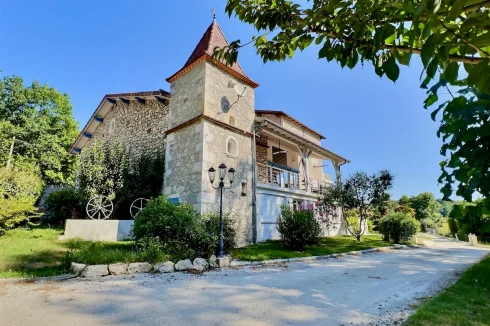Headache Over Medicines in France
Tuesday 04 November 2014
The rules and practice governing the pricing and reimbursement of medicines in France is becoming increasingly complicated.
There are three methods by which you are able to obtain medication from a chemist in France:
- By prescription from your doctor;
- By direct access from the shop shelves;
- On request from the chemist.
Most of the medicines prescribed by your doctor are reimbursable from the social security system, be it at different rates.
Conversely, those freely available from the chemist without a prescription are not reimbursable, and the price for the same or equivalent medicines can vary considerably.
This is how it all operates.
Prescription Medicines
If you are prescribed a medicine (ordonnance) by your doctor there are different rates of reimbursement from the social security system.
The level of reimbursement that applies will depend on the 'service rendered' (Service Médical Rendu - SMR) by the medicine, a quality that is determined by a number of parameters - the effectiveness of the drug, the gravity of the illness, the availability of alternative treatments and the value to public health.
This assessment is not based on your own medical condition, but an assessment of the drug itself. The rates of reimbursement that apply are as follows:
| Type of Medicine | Rate |
| Irreplaceable | 100% |
| Important | 65% |
| Moderate | 35% |
| Weak | 15% |
Today only 4% of medicines are now eligible for 100% reimbursement, with three quarters reimbursable at the rate of 65%. In order to obtain 100% reimbursement you will need to have in place a complementary 'top-up' health policy.
As part of a cost saving exercise the government is insisting on greater use of cheaper but equivalent generic medicines, as a result of which an increasing number of branded medicines are no longer eligible for reimbursement, unless specifically prescribed by your doctor.
Although generic drugs can only be manufactured and sold once the patent on the branded drug has expired they are around one-third cheaper the originals so represent a considerable saving when their use is sanctioned.
If your doctor does prescribe a branded medicine (or you specifically request one), when an equivalent generic alternative exists, you will only obtain reimbursement at the tariff of the generic alternative.
If you are prescribed a branded medicine the chemist also has the right to substitute a generic alternative, unless your doctor makes it clear on the prescription that it must not be substituted. You can refuse substitution, but you carry the financial consequences.
With the price of many branded drugs no longer controlled by the health system, the powerful French pharmaceutical industry has reacted by sharply pushing up the prices of some of these drugs, in the full knowledge that there are those who will continue to pay for them, whatever the cost.
Until July of this year, the rate of reimbursement of the medicine was shown by a coloured tear-off strip (vignette) on the container, which could be used to obtain reimbursement. This has now been abolished, and the level of reimbursement appears on the bill given to you by the chemist, shown on the reverse of the prescription.
Over the Counter Medicines
Since 2008 chemists have been permitted to sell some medicines without a prescription - sans ordonnance. There are now around 500 medicines authorised for sale in this way and it is a market worth over €2 billion a year.
With the price of prescription medicines strictly controlled, and with the more widespread obligation to use lower margin generic alternatives, chemists are inevitably using sales from over the counter medicines to make up for lost revenues.
Chemists are free to set their own prices for most of these medicines, and numerous consumer surveys in recent years have found that prices between one chemist and another can vary enormously.
Unless specifically prescribed by your doctor, these medicines are not reimbursable by the social security system, and most complementary insurers do not support them, so you will need to pay out of your own pocket.
The level of transparency over the prices of over the counter medicines is also often rather poor.
Some medicines will be shown openly on the shelves of the chemist 'en libres service', whilst certain others will only be available 'derrière le comptoir', requiring that you ask the chemist for them.
Not only are the prices for behind the counter medicines rarely visible, but numerous consumer surveys have shown that those medicines are often cheaper alternatives to those on the front shelves.
One of the main reasons is that some of these medicines are price controlled by the government, as they are also available on prescription.
The pharmaceutical industry also sometimes goes to great lengths to confuse patients by playing on subtle differences in brand names.
Thus, one of the biggest selling drugs, the painkiller Nurofen is sold over the counter for an average of €4 a container, when the same supplier provides the equivalent price controlled medicine under the branding Nureflex for around €2.50.
Similarly, the anti-inflammatory drug 'AdvilMed' can be purchased for a fixed price controlled by the State, but there are many similar brands - Advil, AdvilCaps, AdvilGell AdvilEff - for which the chemist can charge their own price.
The same goes for the painkiller 'Doliprane', which has more expensive brands called DolipraneLib, DolipraneOro at prices determined by the chemist. The heartburn medicine Gaviscon is available at a lower fixed price than Gavisconell, which is not price controlled.
Do not count on the chemist to offer you the cheapest brand, for whilst some may do so, this is not systematic, as they earn more selling a non-refundable medicine whose price is not controlled by the government.
If in doubt, simply ask the chemist if they have a cheaper alternative.
Where to Buy?
At the present time you will not be able to buy over the counter medicines anywhere else other than at a chemist, as they hold a monopoly over the distribution of medicines. This is not necessarily bad news, as it does ensure all areas of the country have a local service.
The supermarkets have been pressing for years to be granted permission to sell non-reimbursable medicines, and they have been assisted in this campaign by the French Competition Authority, who have recommended a relaxation of existing rules. The government has so far resisted any change, but as a way of circumventing regulations some supermarkets now actually have a chemist inside some of their stores.
Since January 2013 it has also been possible to purchase over the counter medicines on French websites, but only chemists are authorised to sell over the internet. Although the prices may be cheaper, it is questionable whether the cost of postage still makes it worthwhile. If you are interested in doing so, use your search engine for 'pharmacie en ligne'. You will be obliged to complete a questionnaire before the medicines are dispatched.
Those who 'bulk buy' medicines, can also do so over the internet from the UK, whose sites are less intrusive, and where medicines can also be obtained at competitive prices.
Back To: Local Rates in France 2014
Thank you for showing an interest in our News section.
Our News section is no longer being published although our catalogue of articles remains in place.
If you found our News useful, please have a look at France Insider, our subscription based News service with in-depth analysis, or our authoritative Guides to France.
If you require advice and assistance with the purchase of French property and moving to France, then take a look at the France Insider Property Clinic.





